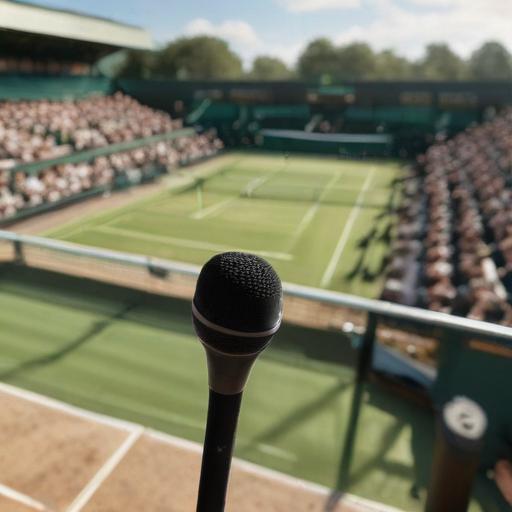Tennis commentator Andrew Castle faced significant backlash online after his recent comments regarding Trinity Rodman, the daughter of NBA icon Dennis Rodman, during the Wimbledon match between Ben Shelton and Lorenzo Sonego. Critics labeled Castle’s remarks about her father as a “micro-aggression,” suggesting a larger issue related to sensitivity and awareness in sports commentary.
In response to the situation, Rodman took to social media to clarify her name, emphasizing that it is Trinity and expressing her desire to focus on Shelton’s achievements without bringing her estranged father into the conversation. She stated, “My dad’s not even in MY life, no need to bring him up during HIS matches,” underscoring the importance of the moment for Shelton and his family.
Shelton, who is currently ranked as the 10th seed at Wimbledon and is coached by his father, Bryan Shelton, has advanced to the quarter-finals where he will face world number one Jannik Sinner. Following the incident, a BBC spokesperson confirmed that Castle had apologized for mispronouncing Rodman’s name during the match.
Castle has a track record of making controversial comments during his commentary career, including past incidents deemed sexist and inappropriate. In response to his critics on social media, he stated that he anticipated backlash, describing those who disagreed with him as “earnest, humourless and probably no fun at all.” Castle later acknowledged his missteps, indicating that he never intended to upset anyone.
This unfolding story highlights the increasing scrutiny faced by commentators in the age of social media, where public figures are held accountable for their words and the impact they may have on individuals and their experiences. Moving forward, it is hoped that commentators will be more mindful of the language used in their broadcasts, fostering a more inclusive and respectful environment in sports commentary.
